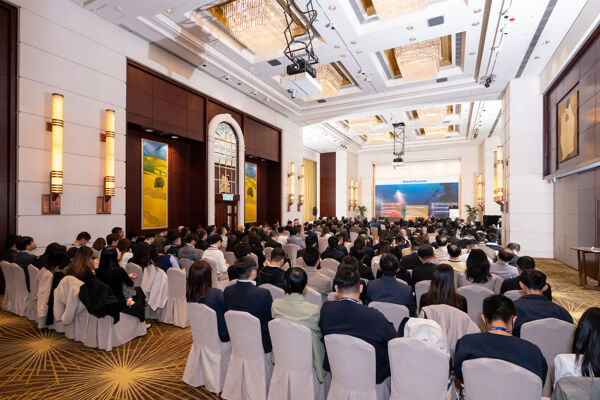
Key points
- ECC clause 61.3 requires a contractor to notify what it ‘believes’ to be a compensation event if the event has not been notified by the project manager.
- The clause goes on to state that such notification will be time barred if not made within 8 weeks of a contactor ‘becoming aware’ the event happened.
- This can lead to contractors being time-barred from compensation, particularly as gaining ‘belief’ can often take longer than ‘becoming aware’.
- It is suggested that redrafting clause 61.3 to make the contractor’s notification obligation consistent with the time bar would remove any ambiguity or unfairness.
Under clause 61.3 of the NEC3 and NEC4 Engineering and Construction Contract (ECC), the contractor has to notify the project manager of what the contractor ‘believes’ to be a compensation event if the project manager has not already notified the event. It goes on to say that if the contractor does not notify a compensation event within 8 weeks of ‘becoming aware’ the event has happened, there will be no change to the prices or programme – effectively a time bar.
This article discusses the nuances of the wording of clause 61.3, gives practical tips for not falling foul of the time bar and suggests alternative wordings which would remove any ambiguity.
Defining ‘belief’
The first half of clause 61.3 states that the contractor is required to notify a compensation event if the contractor ‘believes’ that the event is a compensation event and the project manager has not notified the event to the contractor. But, for the purposes of an obligation to notify a compensation event, what must the contractor know and believe, and what form, status or understanding must this knowledge or belief take? Is it the mere suspicion that an event might be a compensation event, or is it the first encountering of the event on site?
The judgment in Arab Lawyers Network Company Ltd v. Thomson Reuters (Professional) UK Ltd [2021] EWHC 1728 (Comm) suggests not on both counts. Judge Peter Eggers said, ‘knowledge does not mean… must have an unwavering conviction in the belief in the truth of the basis for the claim, but there must be a sufficient measure of confidence in the belief which is justified by evidence, experience or reasoning. A mere suspicion, even if supported by some indeterminate evidence, is not sufficient to constitute knowledge for this purpose.’
Therefore, before notifying a compensation event under clause 61.3, the contractor’s belief needs to be justified by sufficient evidence, experience and reasoning that, on the balance of probability (the level of proof needed under civil law), an event which has, ‘happened or which is expected to happen,’ is indeed a compensation event. This is important because the time bar in the second half of clause 61.3 does not use the word ‘belief ’. The time bar starts 8 weeks (7 weeks for a subcontractor) from the contractor, ‘becoming aware that the event has happened’. It is also noteworthy that the notification element of the clause also refers to an ‘expected’ event, whereas the time-bar element does not.
Unreasonable time bar
While an 8-week time bar from the event awareness date might seem reasonable, there are many situations where this might not be the case. For example, a contractor may have initially been persuaded by a project manager into believing that an event was not a compensation event, and so did not notify it as such. Subsequently, having taken legal or commercial advice, the contractor finds that there was a valid justification for a compensation event after all, but the time-bar period has passed.
Another example is a contractor that finds an unexpected white substance in the ground. It could only believe this is asbestos, which might be a compensation event, after detailed testing and analysis, which could take more than 8 weeks. Indeed, any situation where the contractor might have to seek external professional or legal advice can easily result in the contractor being time barred from notifying a compensation event.
In effect, clause 61.3 means a contractor must wait before notifying a compensation event until ‘awareness’ of an event becomes a ‘belief ’ that it is a compensation event, which may well take more than 8 weeks. This raises questions such as can a time bar apply before a contractor believes an event is a compensation event? Can a timebar period commence on a different date from the requirement to notify? Can a time bar apply before an obligation to notify even exists? It should also be noted that clients and contractors frequently reduce the time bar to 4 weeks or less.
Recommendations for contractors
From a strictly contractual viewpoint, it could be said that contractors (and subcontractors) should notify any ‘potential’ compensation event within the stated timescale from awareness. The project manager might initially reject it but, as evidence emerges, it can always be re-notified and the project manager should change their decision (a compensation event in itself).
On the other hand, constant notification of possible but unlikely compensation events is going to increase contract administration and will not be great for working relationships with the project manager. However, explaining matters from a contractor’s point of view (i.e. fear of losing entitlement) and a dialogue over what actually constitutes belief may help.
A common-sense approach would be to review regularly all previously notified early warnings and, when the time bar is almost up and if still in doubt, notify a compensation event.
Contractors could also quote the judgment in Obrascon Huarte Lain SA v. Her Majesty’s Attorney General for Gibraltar 2014.
Commenting on the Fidic Yellow Book, judge Robert Akenhead said there was, ‘no reason why this clause should be construed strictly against the contractor…it should be construed reasonably broadly, given its serious effect on what could otherwise be good claims’.
Suggested redraft of clause 61.3
While the above recommendations may help to address the symptoms of the mismatch between ‘belief ’ and ‘awareness’ in clause 61.3, they do not address the cause. We suggest the clause could be simply re-drafted in one of two ways (new text in bold, existing text struck out).
- 61.3 The Contractor notifies the Project Manager of an event which has happened or which is expected to happen as a compensation event if
- the Contractor believes that the event is a compensation event and
- the Project Manager has not notified the event to the Contractor.
If the Contractor does not notify a compensation event within eight weeks of believing that event is a compensation event becoming aware that the event has happened…
- 61.3 The Contractor notifies the Project Manager of an event which has happened
or which is expected to happenas a compensation event if- the Contractor has become aware that the event has happened
believes that the event is a compensation eventand - the Project Manager has not notified the event to the Contractor.
- the Contractor has become aware that the event has happened
If the Contractor does not notify a compensation event within eight weeks of becoming aware that the event has happened…
In both alternatives, the obligation placed upon the contractor to notify becomes consistent with the time bar: in the first it is belief an event is a compensation event, and in the second it is awareness an event has happened. Of the two, we prefer the first.
Furthermore, in return for the time bar being based upon belief (such as after having sought external professional or legal advice), we think it would be understandable and even perhaps reasonable that the time-bar period be reduced from 8 weeks to 4 weeks.




